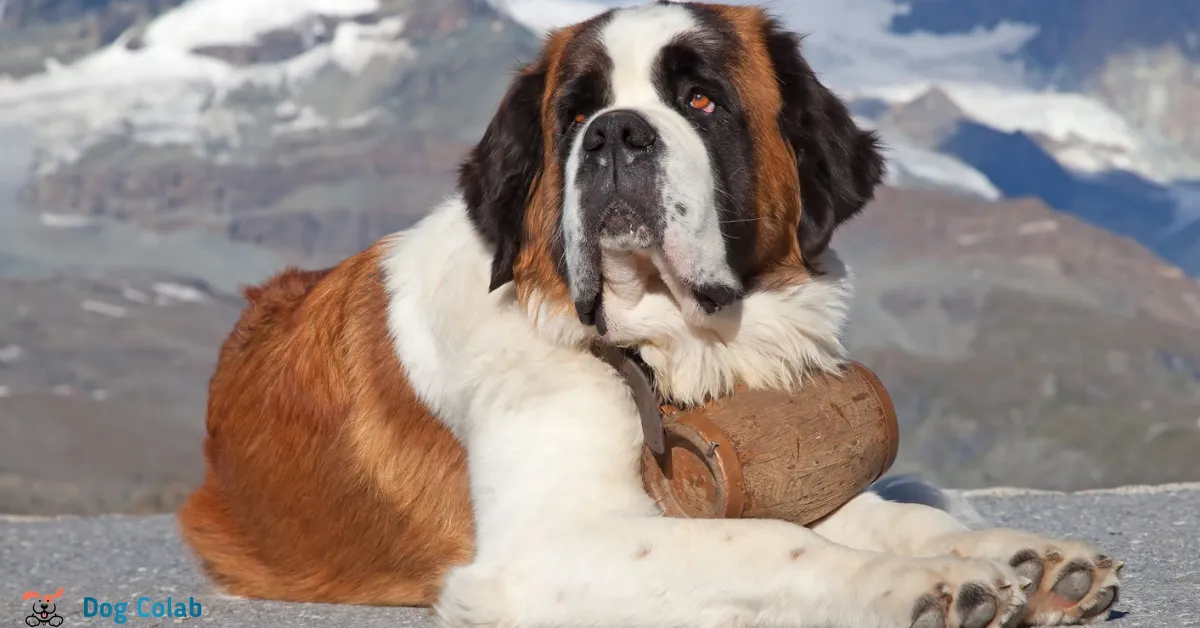Dogs have been known as humans’ great pals for a very long time. People in many places really love dogs of all sizes, but many folks think that big dogs are usually kinder and more gentle than the little ones. You might wonder why are big dogs so gentle.
So, many big dogs are usually gentler than small ones. Big dogs like Labrador Retrievers, Great Danes, and German Shepherds are often obedient, less likely to be mean, and not as scared of things. So, they can be friendly and nice to have around.
In this blog post, we will discuss the reasons why are big dogs so gentle, what dog breeds are more gentle, and so on.
Why Are Big Dogs So Gentle?
Big dogs are often perceived as gentle for several reasons. Here are some reasons why are big dogs nicer.
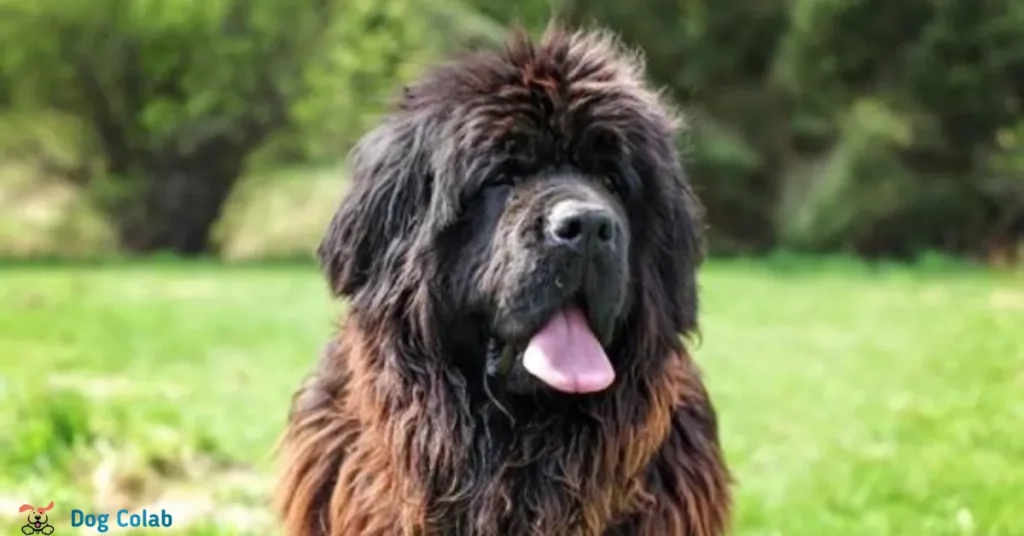
1. Socialization
One of the primary reasons big dogs tend to be gentle is the influence of socialization and training. Responsible owners understand the importance of socializing their dogs from a young age. Proper socialization exposes them to various people, animals, and situations, helping them build confidence and adaptability.
When big dogs are raised in an environment that promotes positive interactions and experiences, they are more likely to develop gentle and well-behaved temperaments.
2. Temperament and Genetics
The gentleness of big dogs is often linked to their innate temperament and genetic predisposition. Many large breeds were originally developed for specific purposes such as guarding, herding, or hunting. Over time, breeders selectively bred dogs with stable and calm temperaments to ensure they could work effectively alongside humans.
3. Size and Confidence
Big dogs are typically more confident in their size and abilities. Unlike smaller dogs that may feel the need to compensate for their size with aggression or excessive barking, big dogs are less likely to see other dogs or people as threats. They are often secure in their physical presence and are less inclined to display aggressive behavior.
4. Lifespan and Aging
Another factor that contributes to the gentleness of big dogs is their relatively shorter lifespan compared to smaller breeds. Many big dog breeds have shorter lifespans and tend to age faster. As they grow older, they often become more mellow and less active, making them even gentler companions.
5. Owner Behavior
The behavior and attitudes of a dog’s owner also play a vital role in determining a big dog’s temperament. Dogs are incredibly attuned to their owners’ emotions and energy, and they often mirror their owner’s behavior. If an owner is calm, gentle, and patient, their big dog is more likely to exhibit the same qualities.
In contrast, if an owner is anxious, aggressive, or inconsistent in their training, it can negatively impact a dog’s behavior and potentially lead to aggression.
6. Training
Big dogs often receive more training and attention from their owners, as their size and strength require them to be well-behaved. This training can help them become obedient, gentle, and well-mannered pets.
Do Big Dogs Know To Be Gentle With Small Dogs?
Big dogs can be gentle with small dogs, depending on their temperament and training. Some big dogs are naturally gentle, while others may need to be taught to be careful around smaller dogs.
Read More:- Do dogs know their own gender.
Are All Big Dogs Gentle?
Not all big dogs are gentle. Some big dogs can be gentle and friendly, while others might be more aggressive or protective. It depends on their breed, training, and individual personality.
Read More:- Do prong collars make dogs aggressive.
What Large Breeds Are More Gentle?
Some large dog breeds that are often gentle include Labrador Retrievers, Golden Retrievers, and Saint Bernards. But remember, a dog’s temperament also depends on how they are raised and trained.
Read More:- Why do dogs bark when you stare at them.
Are Big Dogs Better Than Small Dogs?
Whether big dogs or small dogs are better depends on your lifestyle and preferences. Big dogs are often stronger and more protective, making them great for security and outdoor activities. Small dogs are more portable and can fit into smaller spaces.
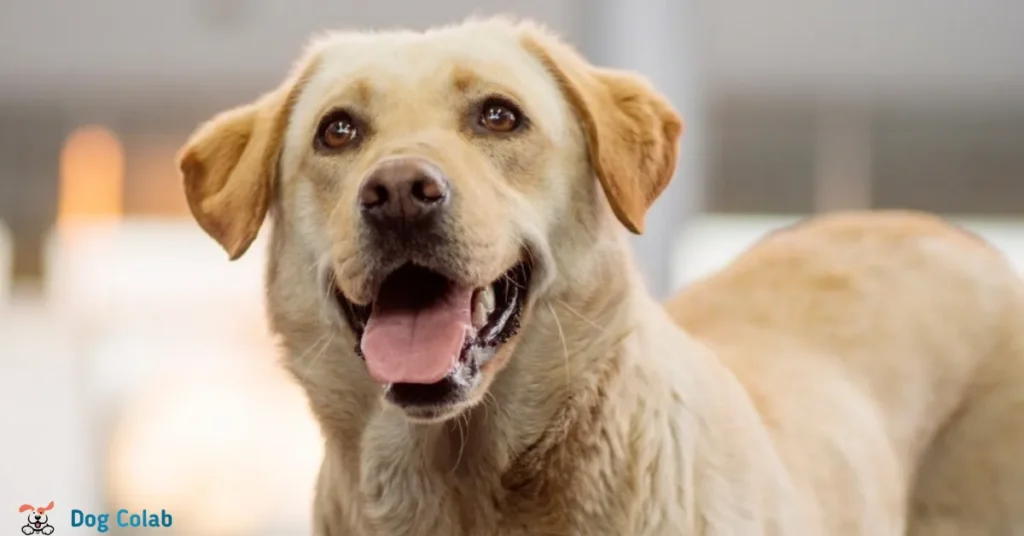
It’s essential to choose a dog that matches your living situation and the amount of time you can dedicate to them. Both big and small dogs can be wonderful companions if their needs align with your own.
Why Are Some Big Dogs Not Gentle?
Not all big dogs are gentle for several reasons, which can be attributed to a combination of genetics, upbringing, and individual personality traits. Here are some factors that can contribute to big dogs not being gentle.
1. Genetics
The breed of a dog can play a significant role in their temperament. Some breeds have been selectively bred for traits like guarding, hunting, or aggressiveness, which can make them less naturally gentle. For example, guard dog breeds like German Shepherds and Doberman Pinschers are naturally more protective and less gentle than other breeds.
2. Socialization
If a big dog is not exposed to various people, animals, and environments during their critical socialization period (usually between 3 and 14 weeks of age), they may develop fear or aggression towards unfamiliar people or situations.
3. Training and Discipline
Dogs that do not receive consistent and positive training may exhibit undesirable behaviors. Big dogs require proper obedience training and consistent reinforcement of good behavior to ensure they remain gentle and well-behaved.
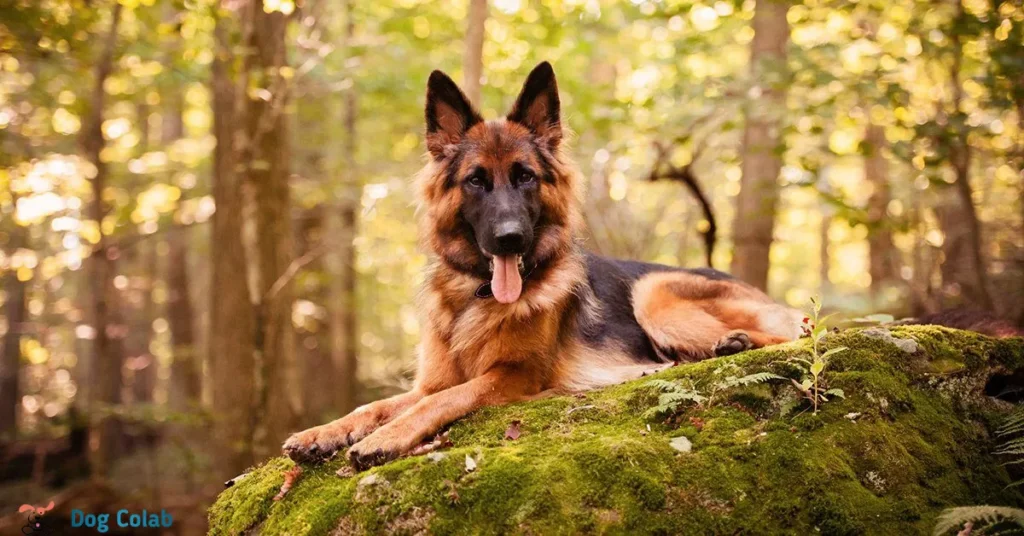
4. Traumatic Experiences
Big dogs, like all dogs, can be affected by traumatic experiences or abusive treatment, which can lead to fear, aggression, or other behavioral issues.
5. Health Issues
Physical discomfort or health problems can make any dog, big or small, more irritable or aggressive. If a big dog is in pain or suffering from an illness, it may behave less gently than when it’s feeling well.
6. Lack of Leadership
Dogs often thrive in environments with clear and consistent leadership. If they don’t see their human caregivers as leaders, they may try to assert themselves or become unruly.
Read More:- Why do dogs try to bite water.
Can I Train a Big Dog To Be Gentle?
Yes, you can train a big dog to be gentle through proper socialization, positive reinforcement training, and consistent reinforcement of desired behaviors.
Read More:- Why do dogs cry in the car.
How To Teach Big Dog To Be Gentle?
Big dogs can be gentle and well-behaved with the right approach. Here are some steps to help make a big dog gentle.
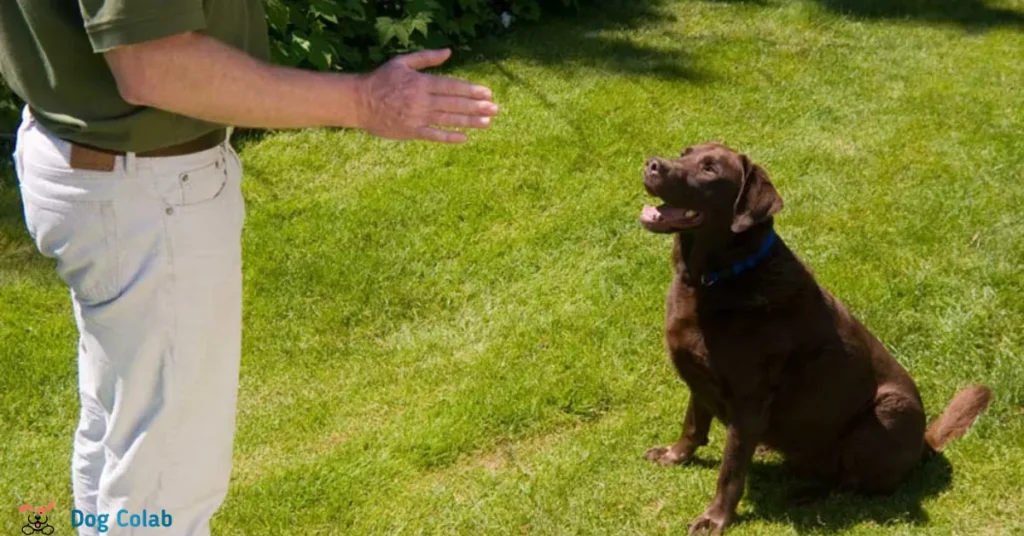
- Start Early: Begin training and socialization when the dog is a puppy. This is the ideal time to instill good behavior and manners.
- Positive Reinforcement: Use positive reinforcement techniques such as treats, praise, and affection to reward your dog for gentle and calm behavior. You can encourage your dog to repeat good behavior by rewarding it.
- Obedience Training: Teach basic obedience commands like sit, stay, and come. These commands can help you control your dog and keep them calm in various situations.
- Socialization: Introduce your dog to different people, animals, and environments from an early age. This helps your dog become comfortable and less anxious in various situations, reducing the likelihood of aggressive behavior.
- Gentle Handling: Get your dog used to being handled and touched. Gently touch and handle your dog’s paws, ears, and other body parts. This can help reduce aggression or fear-based reactions when being touched.
- Desensitization: Gradually expose your dog to stimuli that might trigger aggressive behavior. For example, if your dog reacts negatively to other dogs, start with controlled, positive interactions and gradually increase exposure.
- Socialize with Other Dogs: Arrange playdates with other dogs that are known to be gentle and well-behaved. This can help your dog learn appropriate social behaviors.
- Exercise and Mental Stimulation: Provide your big dog with plenty of physical exercise and mental stimulation. The behavior of a tired dog is generally calmer and less likely to be aggressive.
- Avoid Punishment: Avoid using harsh or punitive training methods, as they can exacerbate aggression and fear in dogs.
- Supervise Interactions: Always supervise your dog’s interactions with people and other animals, especially in the beginning stages of training and socialization.
- Understand Body Language: Learn to read your dog’s body language to identify signs of discomfort, fear, or aggression. This can help you intervene before a situation escalates.
Conclusion “Why Are Big Dogs So Gentle”
The behavior of big dogs is known to be gentler than that of smaller dogs. Because of a combination of socialization, training, genetics, size, and aging contribute to their gentle nature.
While it’s crucial to consider individual differences in temperament, providing the right environment and care can help big dogs become wonderful and gentle companions.
NOTE:- More information can be found by clicking this link.
FAQs
1. Why are big dogs less aggressive?
Big dogs are not necessarily less aggressive than small dogs. A dog’s behavior depends on factors like training, socialization, and genetics, not just their size. Aggressiveness varies from one dog to another.
2. Are big dogs friendlier than small dogs?
Friendliness in dogs isn’t determined by size. A dog’s friendliness depends on its individual personality, upbringing, and socialization. Both big and small dogs can be equally friendly if they are well-trained and treated with love and care.
3. Do dogs know they’re big?
Dogs may not realize their exact size, but they know if they are big or small compared to other dogs or humans based on their experiences and interactions.
